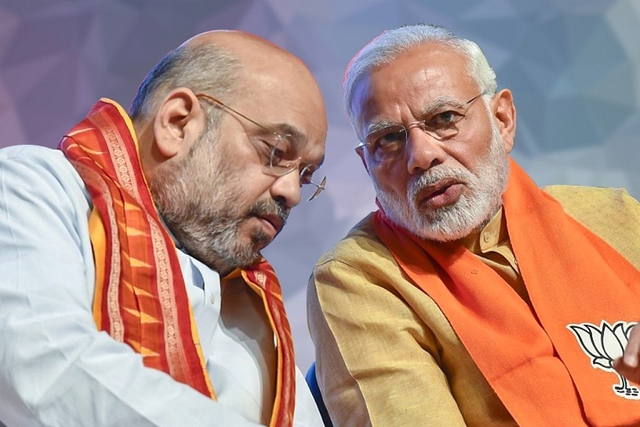
With NRC Nearing Deadline, BJP Has To Fast-Forward Citizenship Bill To Help Excluded Hindus
Citizenship Amendment Bill must be passed as soon as possible, and, if need be, a joint session of Parliament should be called to pass the law in case the Rajya Sabha rejects the idea.
This move is even more important to the unity of India than the removal of Article 370 in Jammu & Kashmir.
Bharatiya Janata Party (BJP) and Rashtriya Swayamsevak Sangh (RSS) appear to have cornered themselves over the National Register of Citizens (NRC) in Assam, where the final list is to be published by the end of this month.
With just days left for the deadline, some front organisations of the Sangh, including the Akhil Bharatiya Vidyarthi Parishad, have realised that most of those excluded will be Hindus. They are thus asking for proper verification and an “error-free” NRC list.
In another development, the Union Home Ministry has promised to extend the time limit for the appeal period for those excluded from 60 days to 120 days, thus giving itself more time to see that hapless Hindus who may not have the relevant documents to prove that they (or their parents) entered the country before 1971, are not immediately sent to detention camps. They are also being verbally assured that mere exclusion from the NRC does not mean they are not citizens.
The BJP is caught between two political priorities which it has failed to reconcile. It has promised the Assamese that all illegals resident in the state (ie, those who came in after 1971) will be deported. But it also has to reckon with its core Hindu constituency, which will not allow persecuted Hindu Bengalis who had to flee their Muslim-dominated country, to become stateless or be deported.
The key to reconciling these two objectives is the Citizenship Amendment Bill (CAB), which is intended to fast-track citizenship to Hindus, Jains, Buddhists, Sikhs, and Christian minorities from three neighbouring countries, Bangladesh, Pakistan and Afghanistan. While there is no problem with the latter two, the real issue is with the sheer numbers coming from Bangladesh.
The BJP, faced with weak numbers in the Rajya Sabha in January 2019, failed to get the CAB passed in its first term. One hopes that it will use the next few months to get this done in the next session of Parliament.
The 'secular' opposition will not let the CAB pass in the Rajya Sabha on the specious plea that it deliberately excludes Muslims, but this is a bogus argument. While, for the sake of neutrality, one can reword the provisions in the CAB to merely mention “religious minorities” instead of spelling who these minorities are, there is no case for treating persecuted Hindu refugees on a par with Muslim illegal immigrants who may merely be entering India for a better life.
According to an estimate made by Dhaka University professor Abul Barkat, some 11.3 million Hindus were forced to leave Bangladesh between 1963 and 2013, with the rate of daily exodus falling only between 1971 and 1991 – in the first 20 years after the liberation of Bangladesh. But in the two decades after that, the daily rate of Hindu exodus has risen by half, from 512 and 438 a day in 1971-81 and 1981-91, respectively, to 767 in the 1991-2001 period, and further to 774 in the decade after that.
There will be no Hindu left in Bangladesh by 2050 at the current rate of daily exodus.
This is the reality confronting India and persecuted Hindus in Bangladesh, and this is the most important reason why Hindu refugees and Muslim illegals cannot be treated on a par. It is morally and legally wrong.
The CAB is meant to undo the damage and give Hindus from Bangladesh a measure of mental relief from the possibility of being rendered stateless, when deportation is not even an option for them.
The BJP must gather the political courage to make this plain so that politically it becomes impossible for a hypocritical opposition to equate two dissimilar situations in order to court the minority vote. CAB must be passed as soon as possible, and, if need be, a joint session of Parliament should be called to pass the law in case the Rajya Sabha rejects the idea.
This move is even more important to the unity of India than the removal of Article 370 in Jammu & Kashmir.